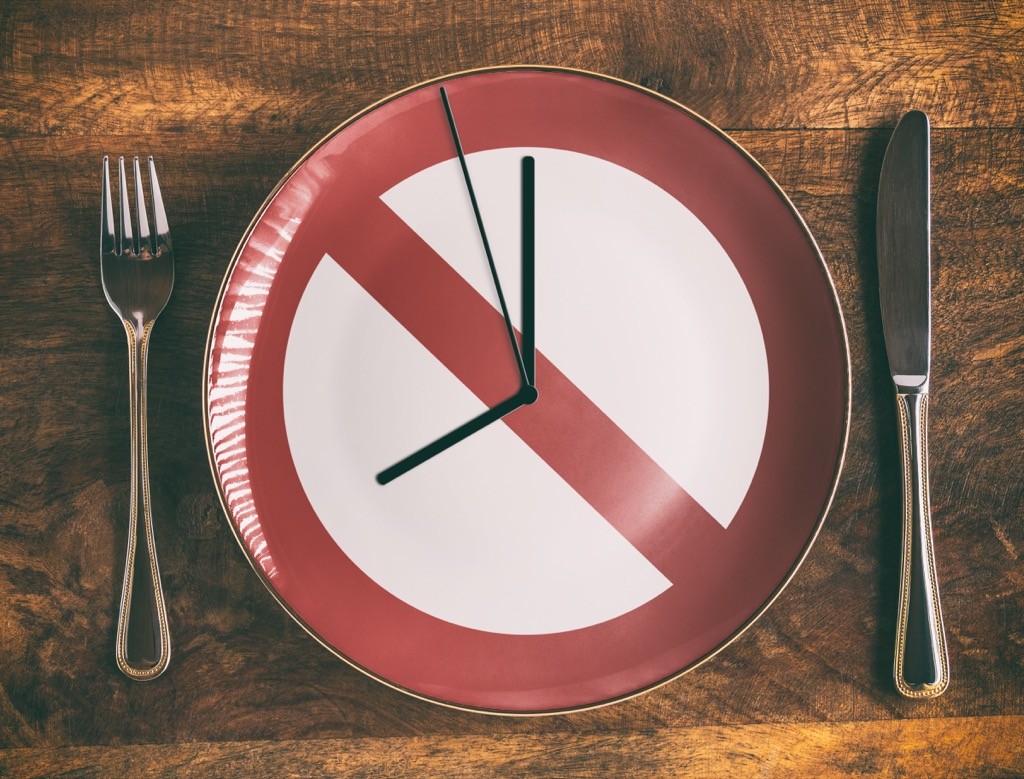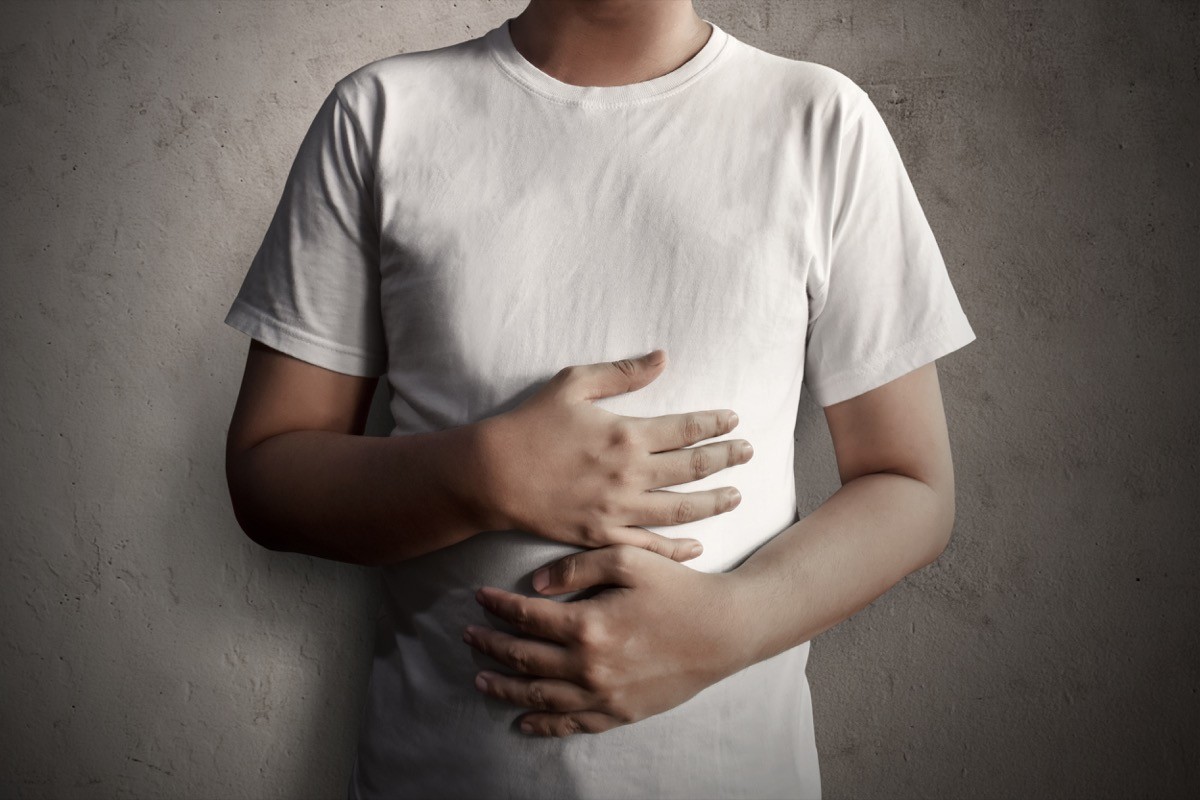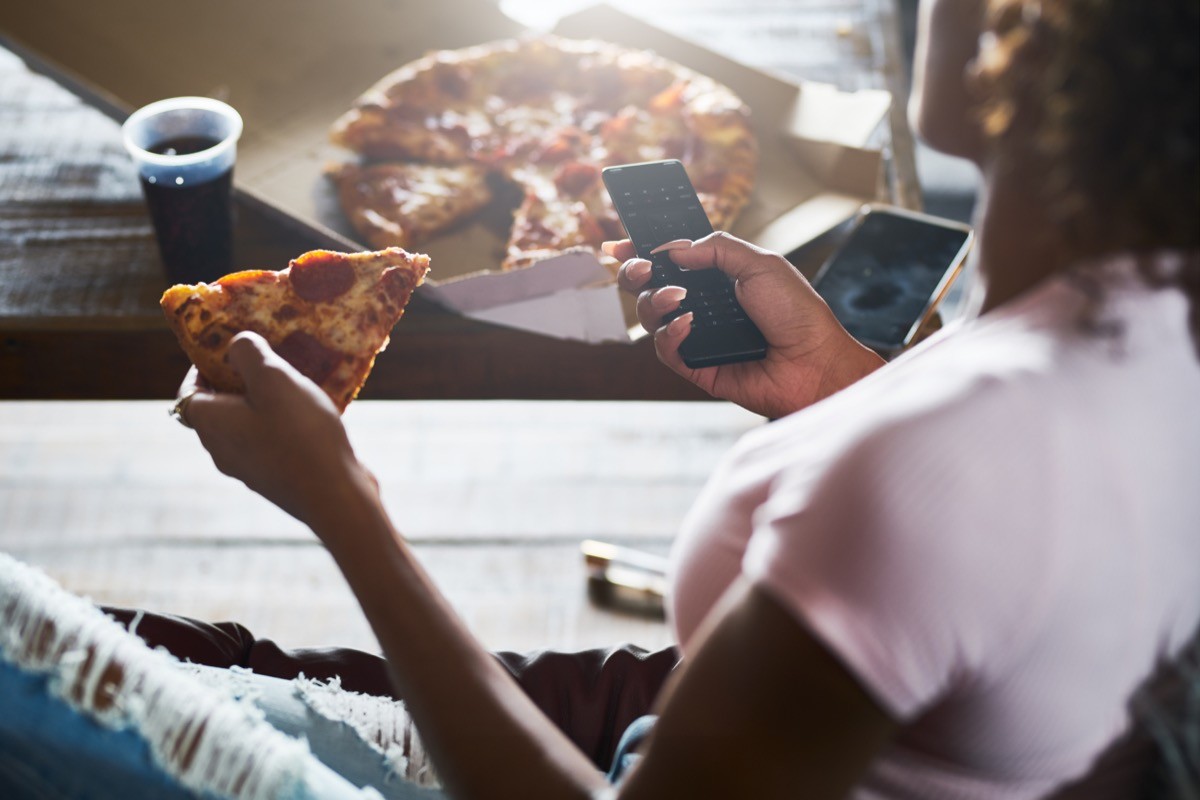Skipping This Meal Could Be the Key to Faster Weight Loss

Intermittent fasting, the practice where you eat all your meals within a set time (your eating window) and fast for the rest of the time (fasting window) has become a hot-button topic, with experts claiming the method impacts not just weight loss but many aspects of health and wellness. “Intermittent fasting contrasts with the normal eating pattern for most Americans, who eat throughout their waking hours,” Johns Hopkins neuroscientist Mark Mattson, PhD, tells Johns Hopkins Health. “If someone is eating three meals a day, plus snacks, and they’re not exercising, then every time they eat, they’re running on those calories and not burning their fat stores.” Whether you’re following a 16/8 fast (16 hours of fasting and an 8 hour eating window), 18/6, or even one meal a day (OMAD), research suggests when we have that meal can make a difference. Here’s which meal is best to skip for weight loss, according to experts.
RELATED: The Habit That Helps You Lose Belly Fat.
Circadian Rhythm

When people talk about skipping meals as part of their intermittent fasting regimen, it’s usually breakfast that is delayed until later in the day. But more research is showing the benefits of sticking to a circadian rhythm where instead of breakfast being skipped, dinner is either had much earlier, or not at all. “The circadian rhythm, as I’ve discussed previously, suggests that late-night eating is not optimal for weight loss,” says intermittent fasting expert Dr. Jason Fung. “This is because excessive insulin is the main driver of obesity, and eating the same food early in the day or late at night have different insulin effects.”
Increased Hunger

According to a study published in Cell Metabolism, eating later in the day leads to a decrease in leptin and an increase in hunger, which may result in weight gain. “The study looked at calorie burn, hunger cues, and hunger perception, and what it found is that people who ate late at night tended to have increased hunger signals and less calorie burn,” gastroenterologist and physician nutrition specialist Dr. Carolyn Newberry tells NewYork-Presbyterian/Weill Cornell Medical Center Health Matters. “While the study was too small to make broad conclusions, it suggests late-night eating could lead to unintentional weight gain or hinder efforts to lose weight. We certainly know that when you go to sleep, your metabolic rate slows down. And if you’re eating late at night, it would make sense that you may burn fewer of the calories that you ate. So it probably isn’t the best thing for somebody who’s trying to lose weight to eat late at night.”
Insulin and Glucose

Research shows eating later can negatively impact insulin levels, which can make weight loss difficult. “We know from our sleep loss studies that when you’re sleep deprived, it negatively affects weight and metabolism in part due to late-night eating, but now these early findings, which control for sleep, give a more comprehensive picture of the benefits of eating earlier in the day,” Namni Goel, PhD, a research associate professor of psychology in Psychiatry in the division of Sleep and Chronobiology, tells Penn Medicine News. “Eating later can promote a negative profile of weight, energy, and hormone markers—such as higher glucose and insulin, which are implicated in diabetes, and cholesterol and triglycerides, which are linked with cardiovascular problems and other health conditions.”
Early Time-Restricted Feeding

Intermittent fasting guru Dr. Eric Berg has changed his method to intermittent fasting, switching to an early (9 a.m. -1 p.m.) window for eating, instead of skipping breakfast and having a later dinner. Here are 7 benefits of early time-restricted eating, according to Dr. Berg:
- Better HOMA-IR (insulin sensitivity)
- Better blood sugars
- Better B-cell response
- Lower appetite in the evening
- Better insulin levels after eating
- Autophagy
- Food genes downgraded in the evening
“In the evening, the genes that deal with food are more downgraded,” he says. “If you eat too late, you start activating them, that’s going to wake you up and affect your sleep.”
RELATED: Safe and Proven Strategies For Weight Loss.
Late Night Snacking Issues

Eating late at night is also disruptive for sleep. “In an ideal world, most people feel best when they eat earlier in the day,” says Dr. Newberry. “When you eat a late-night meal, your body is triggered to secrete stomach acid and digestive enzymes to help break down that meal. When this process is initiated before you lie down and go to sleep, you may develop digestive issues. A number of studies show there’s increased gastric acid secretion after you lie down for bed, and that’s going to cause more esophageal irritation, heartburn, and discomfort. You may also burn fewer of the calories you’ve consumed as your metabolic rate slows down.”
Benefits of Breakfast
